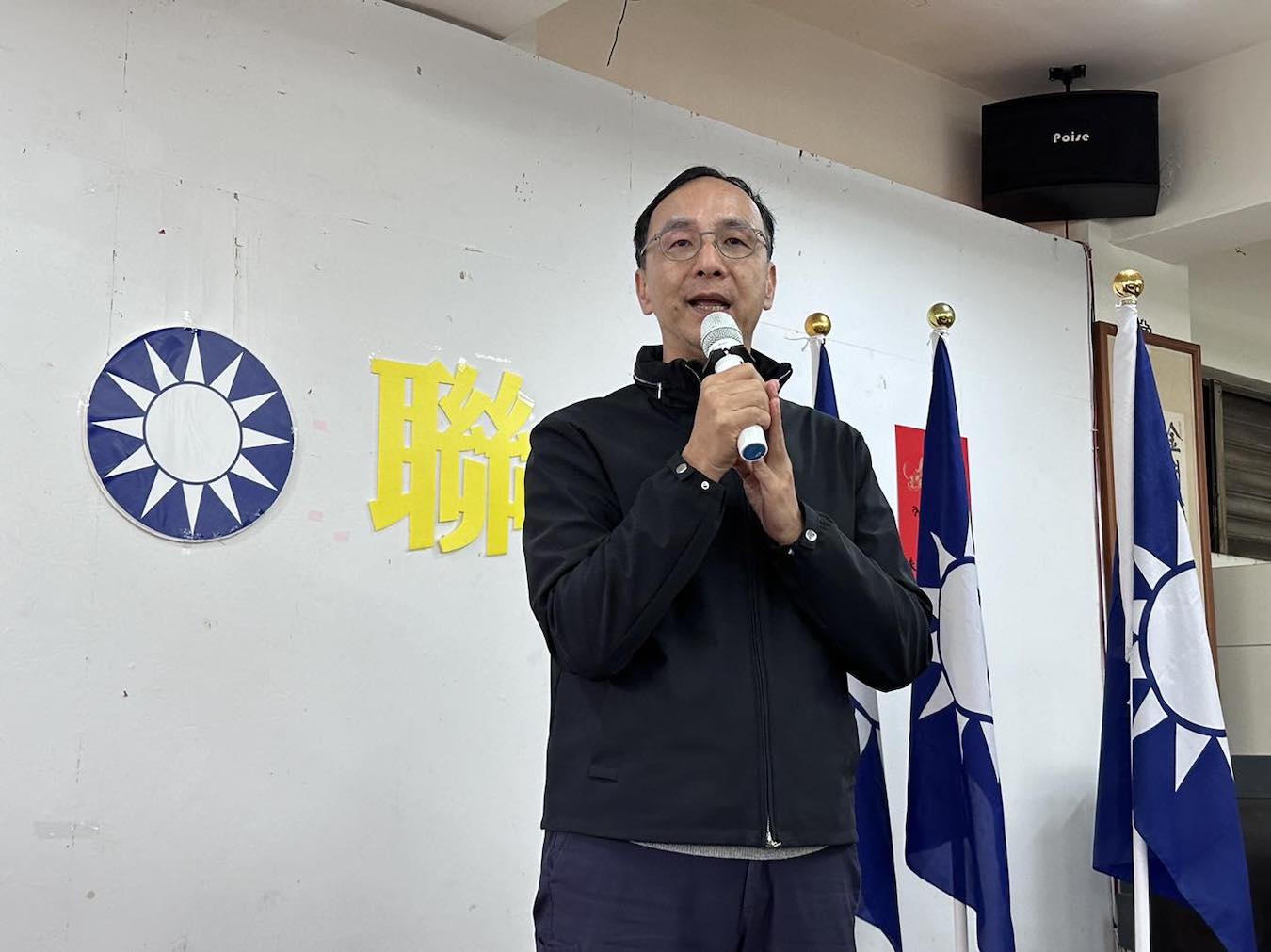by Brian Hioe
語言:
English
Photo Credit: Eric Chu/Facebook
THE KMT LEGISLATIVE CAUCUS has begun to call for introducing the use of the death penalty against those involved in the abuse of children.
The KMT would be leveraging on outrage after the death of a one-year-old in foster care.
The child was put up for adoption through the Child Welfare League Foundation (CWLF) after his mother was arrested and his grandfather asked that he be put up for adoption. A licensed in-home childcare provider was contracted to take care of him, who was originally licensed in October 2022.
The death occurred in December of last year. However, there was not a media outcry until several months later. The child reportedly died because of abuse by the caregiver, surnamed Liu.
Public outrage, however, to a large extent centered around a social worker surnamed Chen, who visited the child in September, October, and November for in-home inspections. A planned December visit was rescheduled after another child cared for by the childcare provider became sick.
Chen was accused of having potentially falsified paperwork or having failed to carry out her duties, seeing as some reports suggest that the CWLF corresponded only with the child’s grandfather, or that images from the inspection were falsified.
At the time, KMT legislator Liao Wei-hsiang suggested that negligence of a child that results in death should have the current five years to life in prison under the Criminal Code increased to capital punishment. It was afterward that the KMT began leveraging on the notion of capital punishment against those who abuse children.
But there may perhaps have been a failure to examine the root causes of abuse in Taiwan, when there are many cases in which children are punished by educators or caregivers in schools, leading to deaths or physical injury. A 2022 incident in which a seven-year-old student practicing judo died from a brain hemorrhage after being body-slammed a total of 27 times by his instructor and other students, making international headlines, likely proves to be the most high-profile injury or death caused by corporal punishment in recent years.
 KMT chair Eric Chu. Photo ctedit: Eric Chu/Facebook
KMT chair Eric Chu. Photo ctedit: Eric Chu/Facebook
Other cases of note involve the death of a five-year-old child at a care facility in Taoyuan, where a six-year-old child also suffered brain damage. The care facility is for children with mental or physical disabilities. The five-year-old child who died, who was surnamed Fang and was autistic, was shaken violently in the head and had tape placed around his neck. This led to the child rolling on the floor in pain for over twenty minutes, while biting his fingers and hitting his head. He died the next day, after his parents noticed his injuries after taking him home.
The six-year-old child who suffered brain damage, who was surnamed Wu, was tied to a chair during an epileptic episode that lasted for three hours, rather than being treated or taken to the hospital. As a result, she later fell into a coma, causing her to sustain permanent brain damage.
Yet capital punishment proves highly popular in Taiwan. The KMT has historically sought to attack the DPP over its hesitancy to implement capital punishment, claiming that the DPP has failed to use capital punishment in such a manner as to act as a social deterrent, allowing for violent crimes to take place–including crimes against children. As such, KMT candidate Hou You-yi attacked DPP presidential candidate Lai Ching-te about the issue of capital punishment in the 2024 election cycle. Similarly, there was a referendum proposal in 2023 to speed up the rate of executions in Taiwan. And, in the meantime, such public support for the death penalty has contributed to challenges clearing prisoners on death row on wrongful convictions going back to authoritarian times.
Indeed, discussion of capital punishment in Taiwan has remained relatively insulated from international discourse that calls for its abolition on human rights grounds. TPP presidential candidate Ko Wen-je even claimed during the 2024 election cycle that capital punishment was an intrinsic part of the Chinese political culture that exists in Taiwan, similar to how gun ownership and individualism are deeply enshrined in American political culture, such that it results in an unwillingness to crack down on guns in spite of mass shooting and Americans being unwilling to wear masks to prevent the spread of COVID-19. It will take much effort to change such attitudes toward capital punishment in Taiwan, then.

